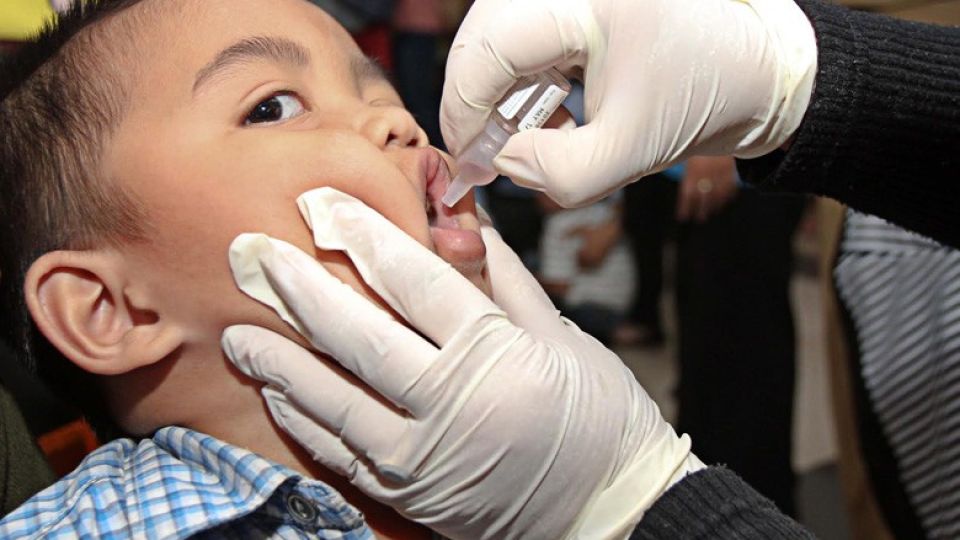October 12, 2022
JAKARTA – After decades of progress, the number of children missing out on basic vaccination in Indonesia is on the rise. This is disheartening news considering that in the decade preceding the COVID-19 pandemic, the country had seen a steady decline in child mortality and a significant increase in the proportion of children receiving all their basic routine vaccines.
When COVID-19 spread across the country over the past few years, it quickly brought an erosion of this progress. Lockdown and containment measures proliferated. Health workers and resources were diverted to respond to the pandemic, while disruptions in supply chains and transport services caused substantial delays in vaccine deliveries.
Many parents were reluctant or unable to go to vaccination sites for fear of exposure to COVID-19 or due to movement restrictions. This was fueled by vaccine misinformation and hoaxes that undermined vaccine confidence.
The numbers tell a clear tale about the consequences. Children who have received the first measles and rubella vaccinations fell from 95 percent in 2019 to 87 percent in 2021. The number of “zero-dose” children – those who did not receive a single dose of the vaccine against diphtheria, pertussis and tetanus (DPT) – rose significantly from 10 percent to 26 percent during the same period, exposing children to a range of diseases, some of which cause debilitating and life-threatening conditions.
This backslide is not confined to Indonesia. The world is experiencing the largest sustained decline in childhood vaccinations in 30 years. Last year alone, 25 million children missed out on one or more doses of the vaccine against DPT offered through routine immunization.
Vaccine-preventable diseases and death are unacceptable when life-saving vaccines exist. Immunization is unequivocally one of the most cost-effective public health interventions to help ensure better childhood health outcomes. For over two centuries, vaccines have safely reduced the scourge of diseases like polio, measles and smallpox, helping children to grow up healthy.
This is why Indonesia’s catch-up immunization campaign (known locally as BIAN) – which aimed to vaccinate some 36.5 million children over a short period of time – was such a significant initiative. The campaign began in May and closed in September with mixed results, having reached close to 70 percent of the target for measles and rubella immunization, 54 percent for DPT-HB-Hib and less than 50 percent for polio.
These gaps in coverage mean that millions of children are still missing out on the protection that vaccines afford.
The success of a campaign like this is built around parents and caregivers feeling confident and convinced about the benefits of immunization. This is challenging to achieve when fears about vaccine safety abound and when misinformation runs rife.
A national vaccine acceptance study done by the Health Ministry and UNICEF in 2020 suggests that commitment at all levels from the national to the village level can help build trust and confidence in the vaccines and the health system – and is a determining factor to increase vaccine uptake.
We know from previous immunization efforts that the role of local government is particularly important in cultivating this kind of trust. It is essential for local authorities across all provinces and districts – particularly governors, regents and mayors – to continue efforts to increase routine immunization at the sub-national levels. This includes specific strategies to target “zero-dose” children and to address barriers to vaccine uptake.
The results of the BIAN campaign are an encouraging signal of what we can achieve with collective action. Beyond the campaign, it remains critical for Indonesia to build on this commitment and to do what it takes to get routine childhood immunization back on track.
COVID-19 has provided an opportunity to build stronger, more resilient primary health care that will help Indonesia prevent future pandemics and ensure children and their families have better health services. As we make investments to recover from the pandemic, this is the future we should work to create – one in which every child can be reached with life-saving vaccines.
***
Maniza Zaman is UNICEF representative in Indonesia and N. Paranietharan is WHO representative in Indonesia.


